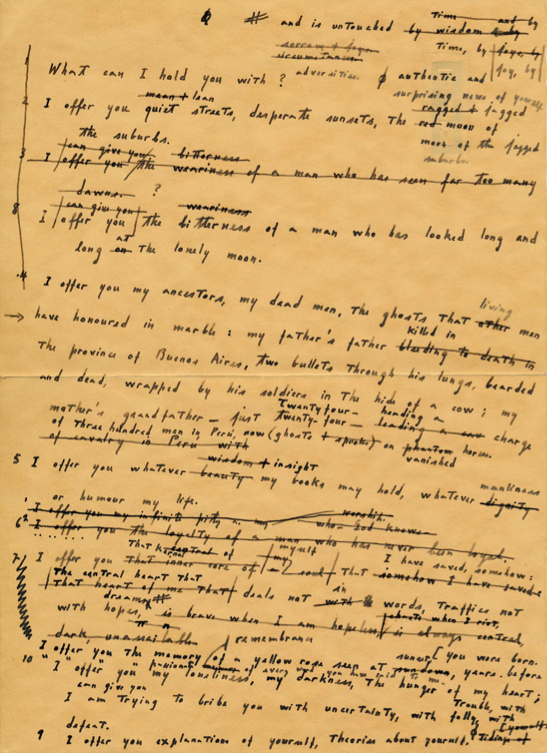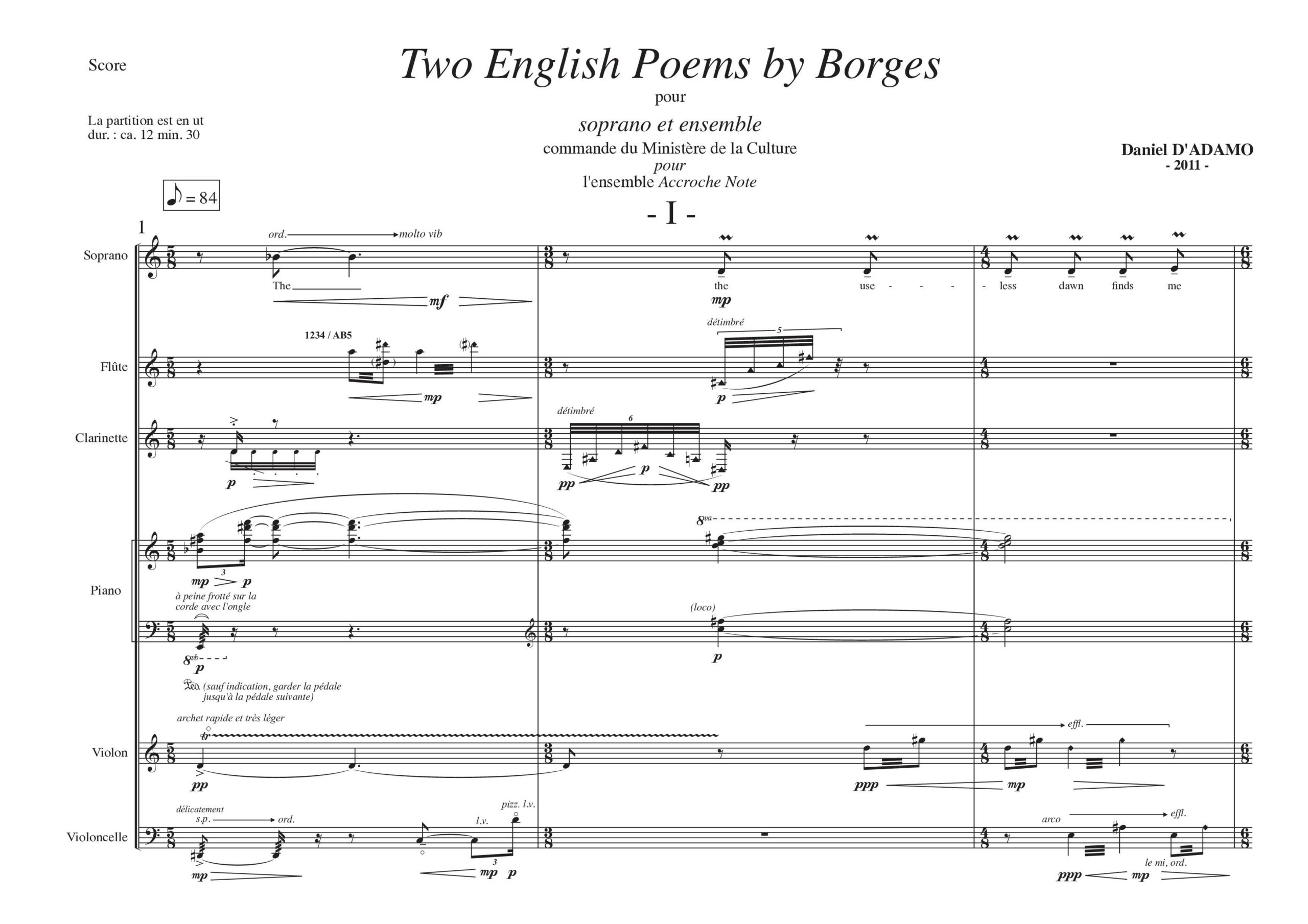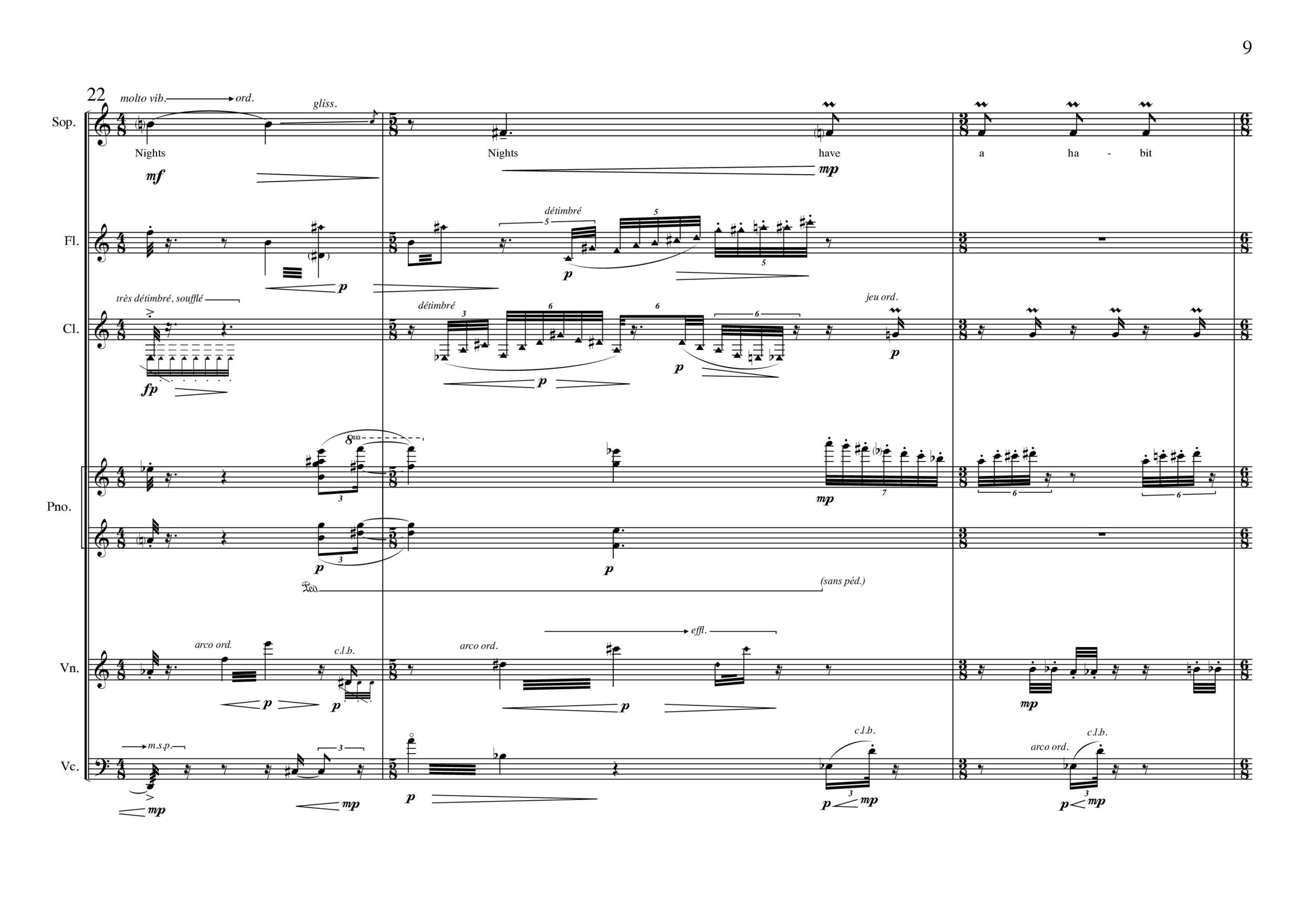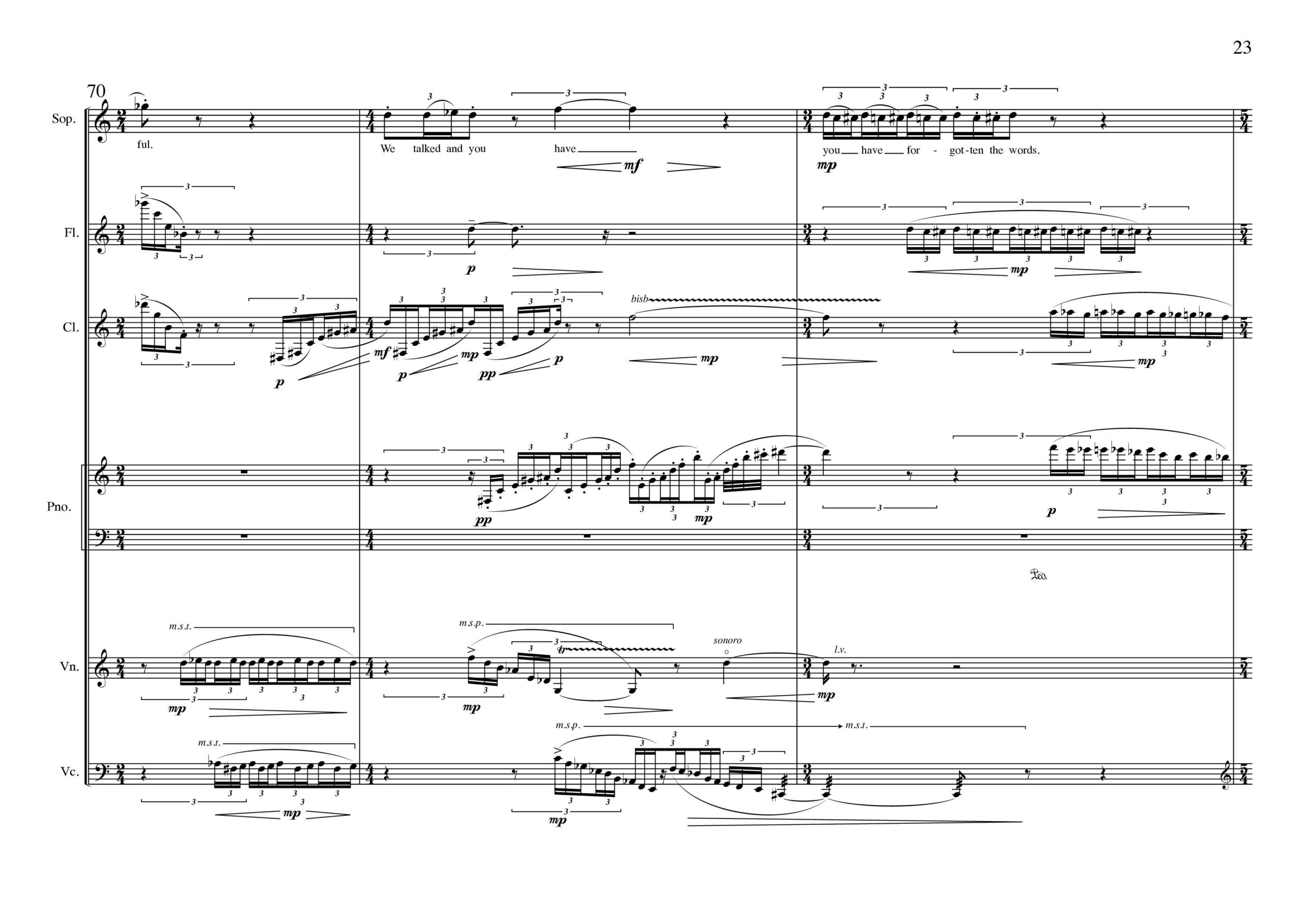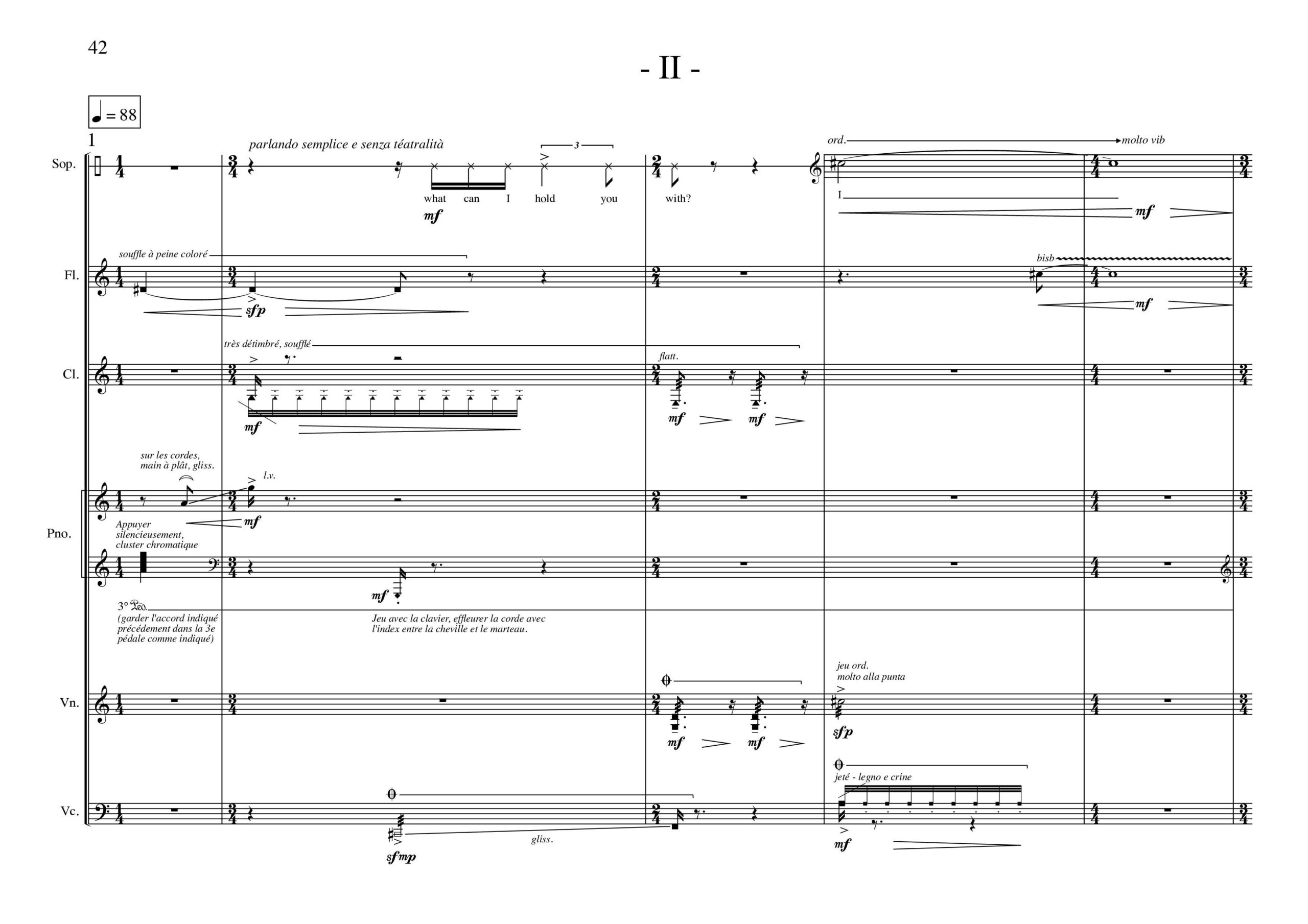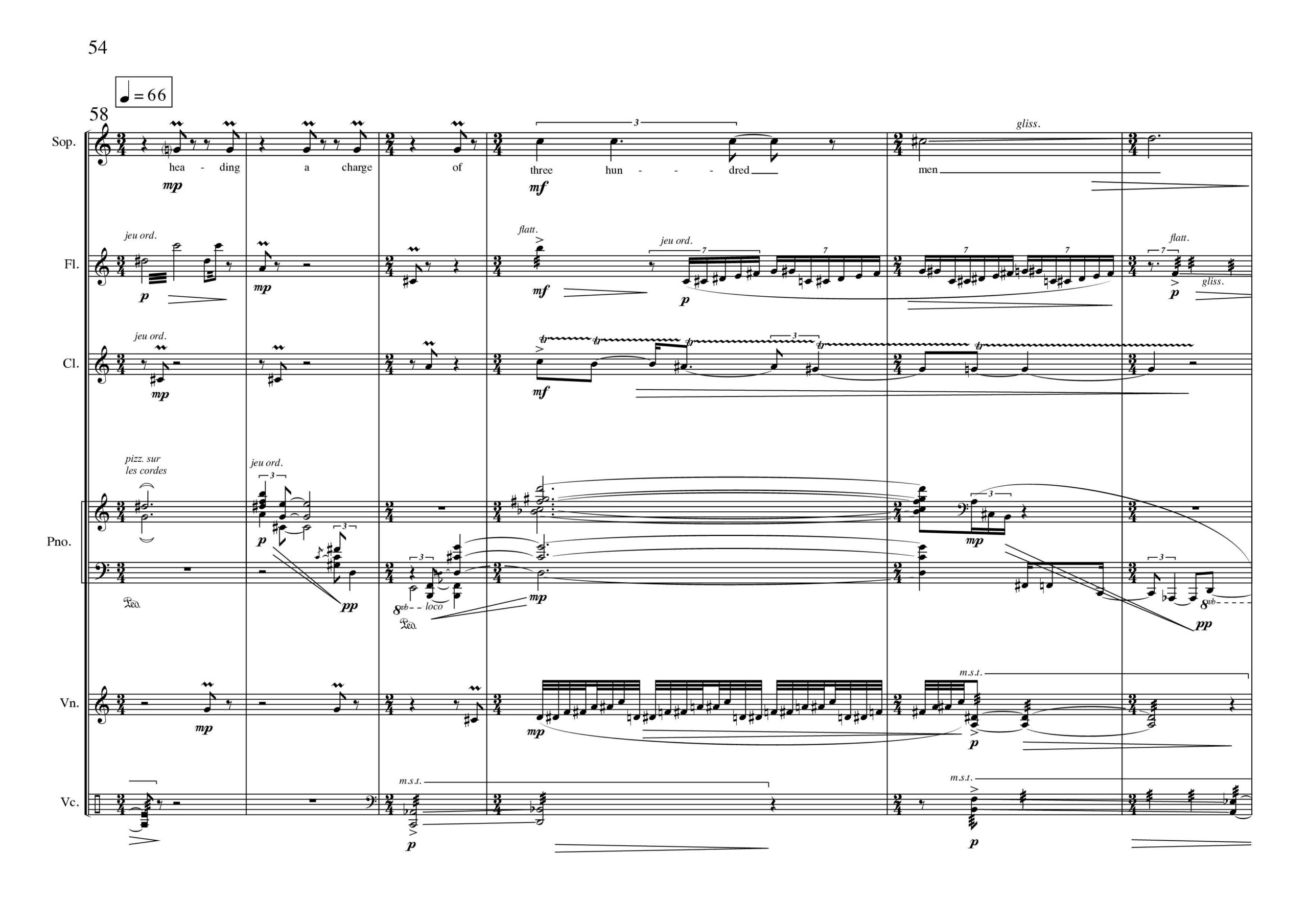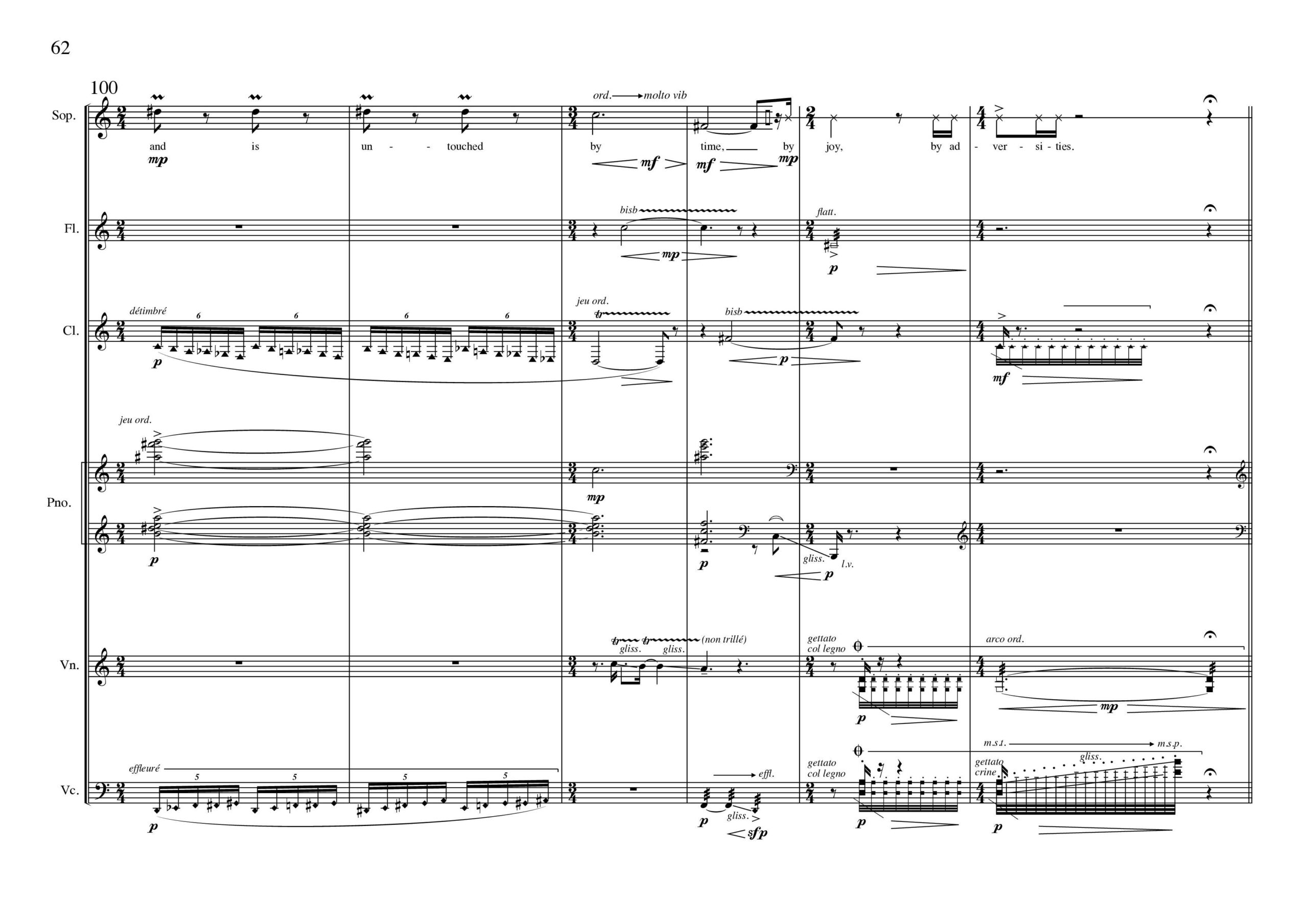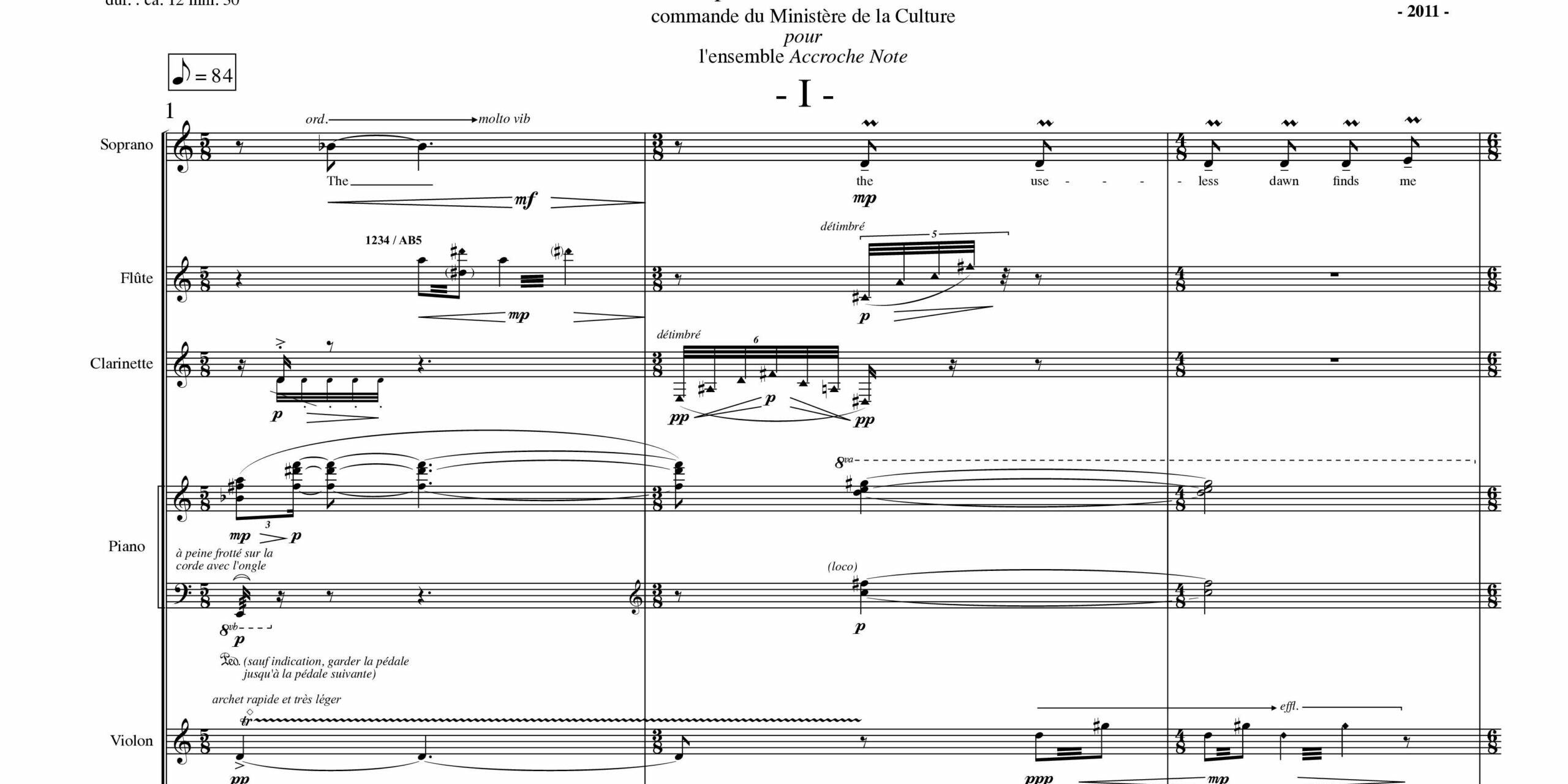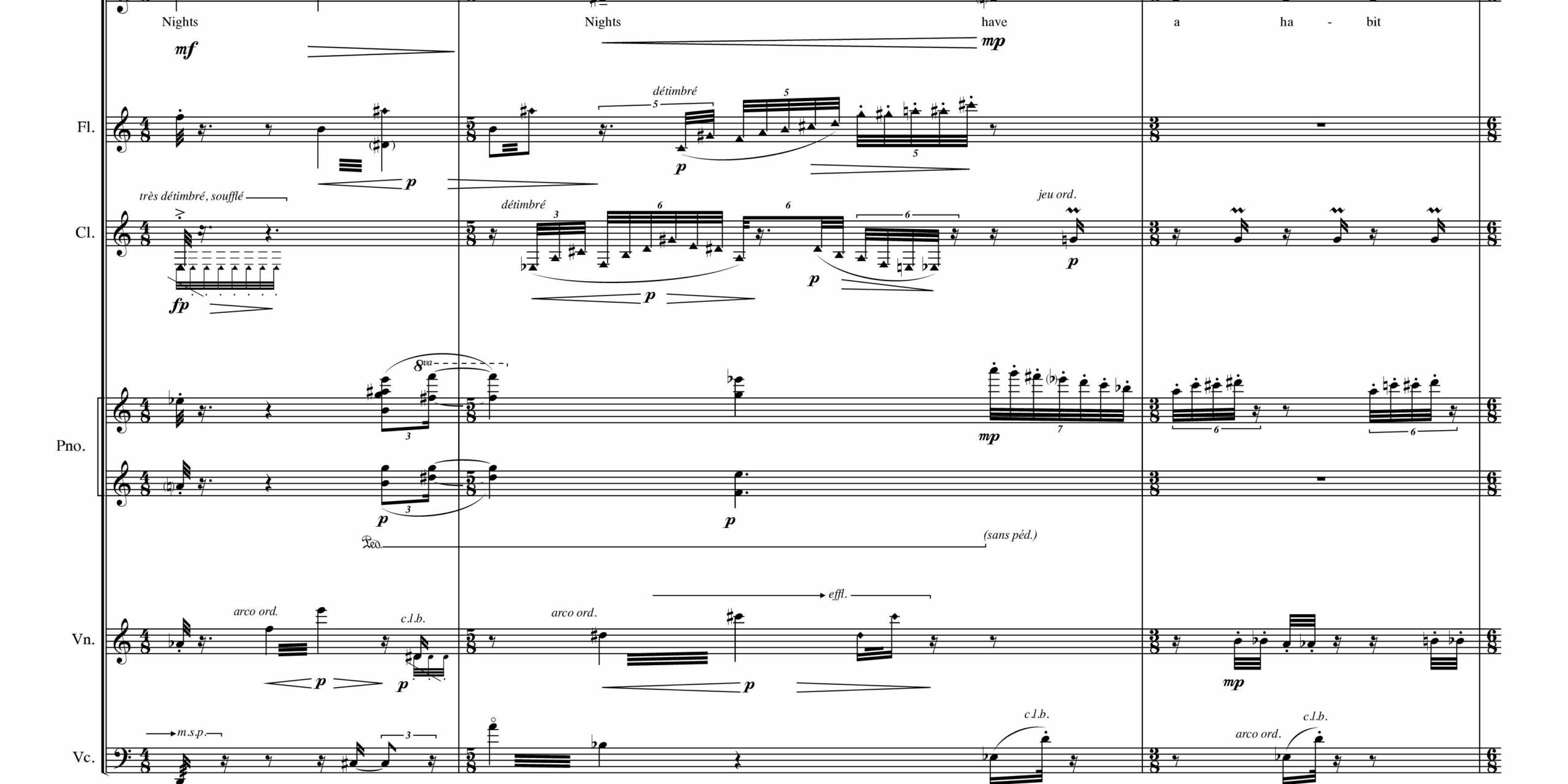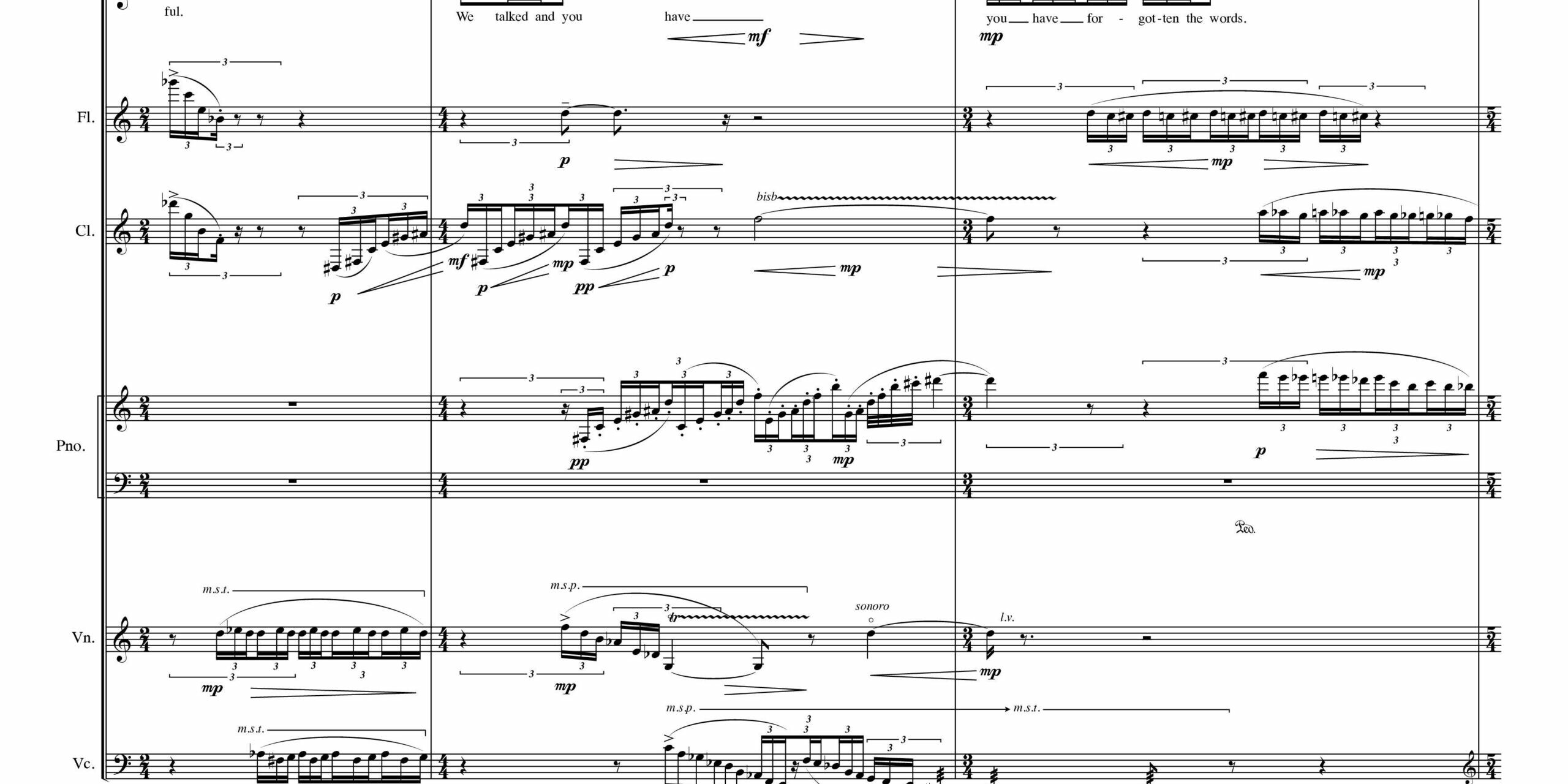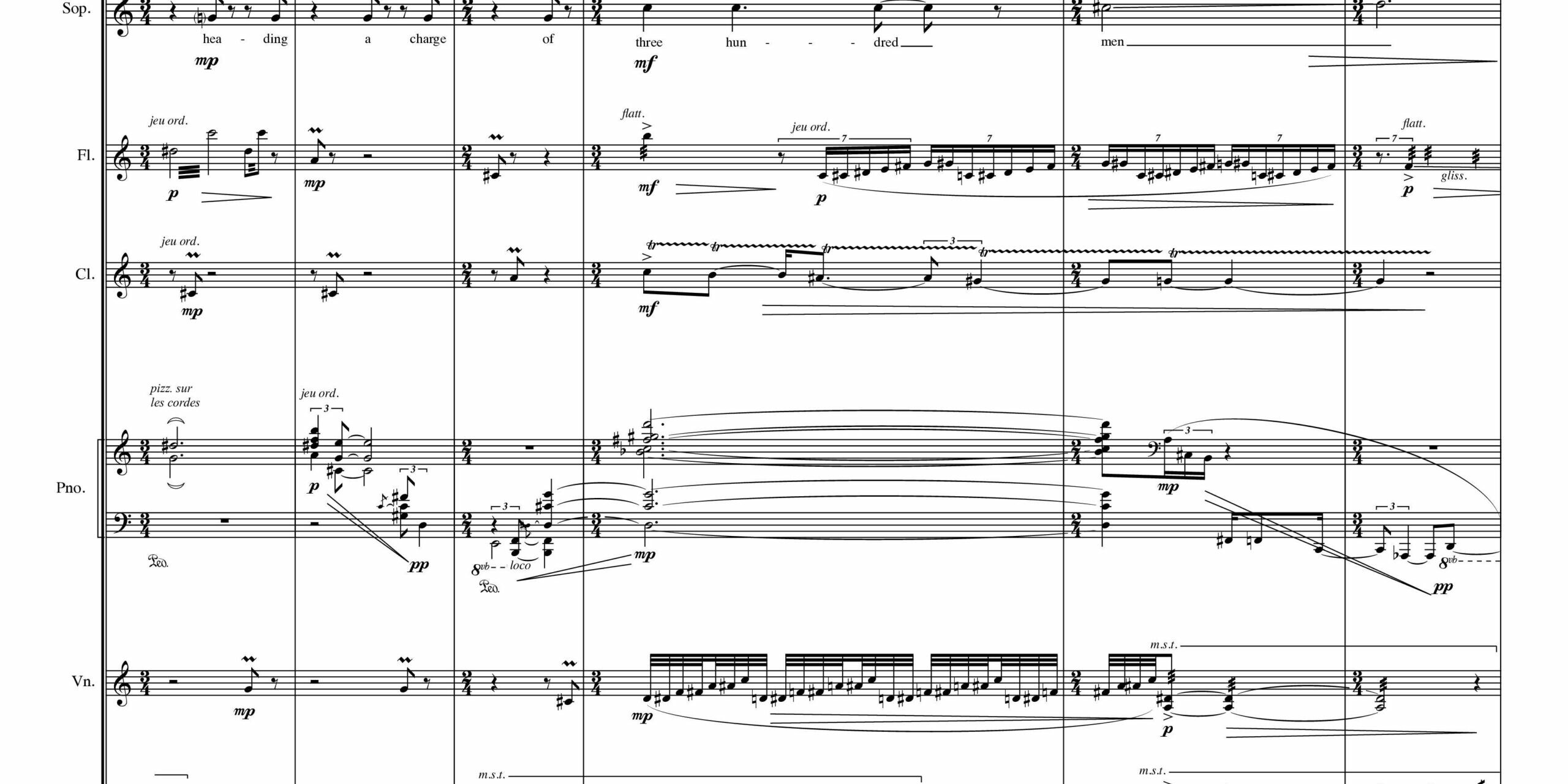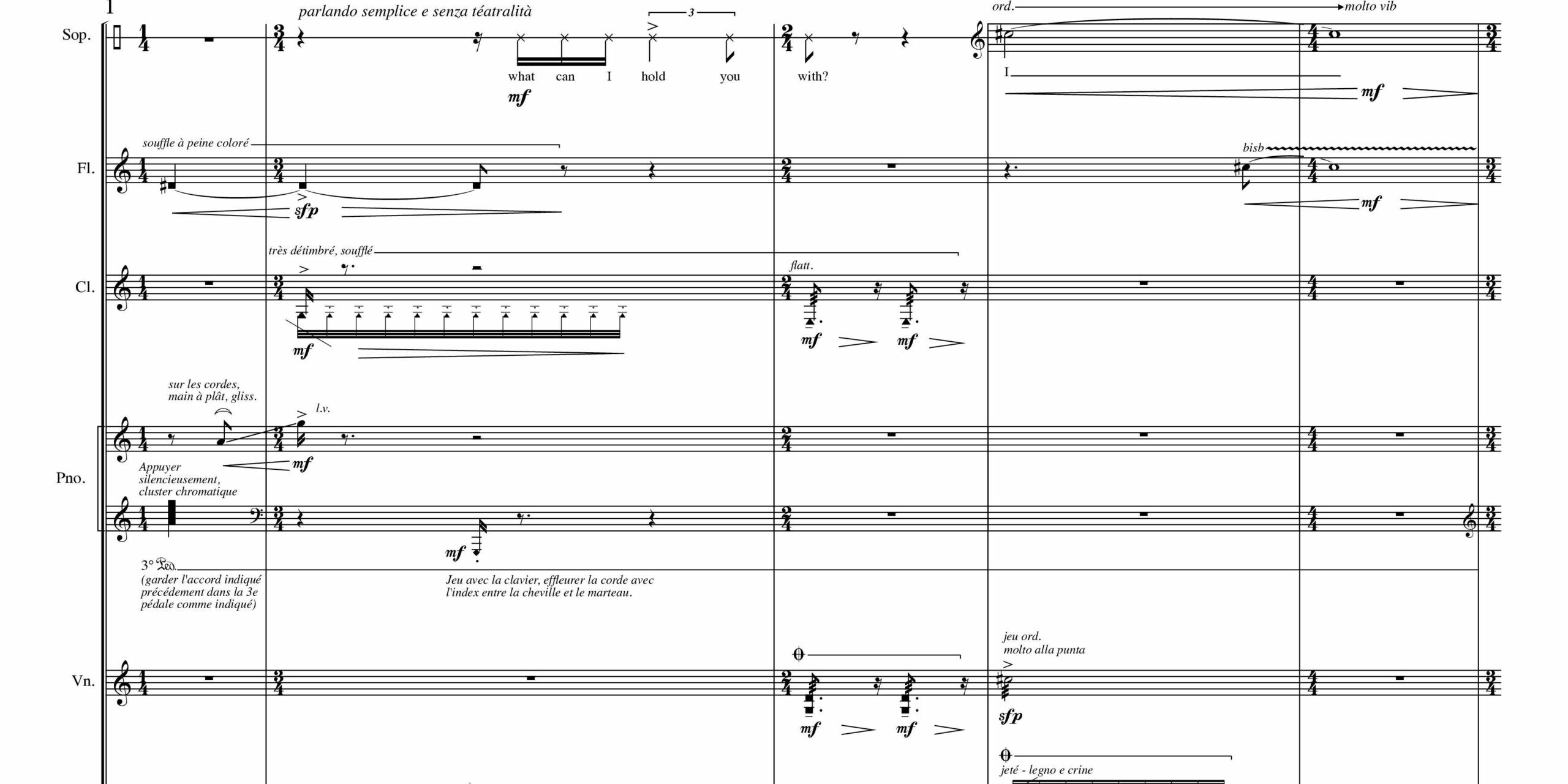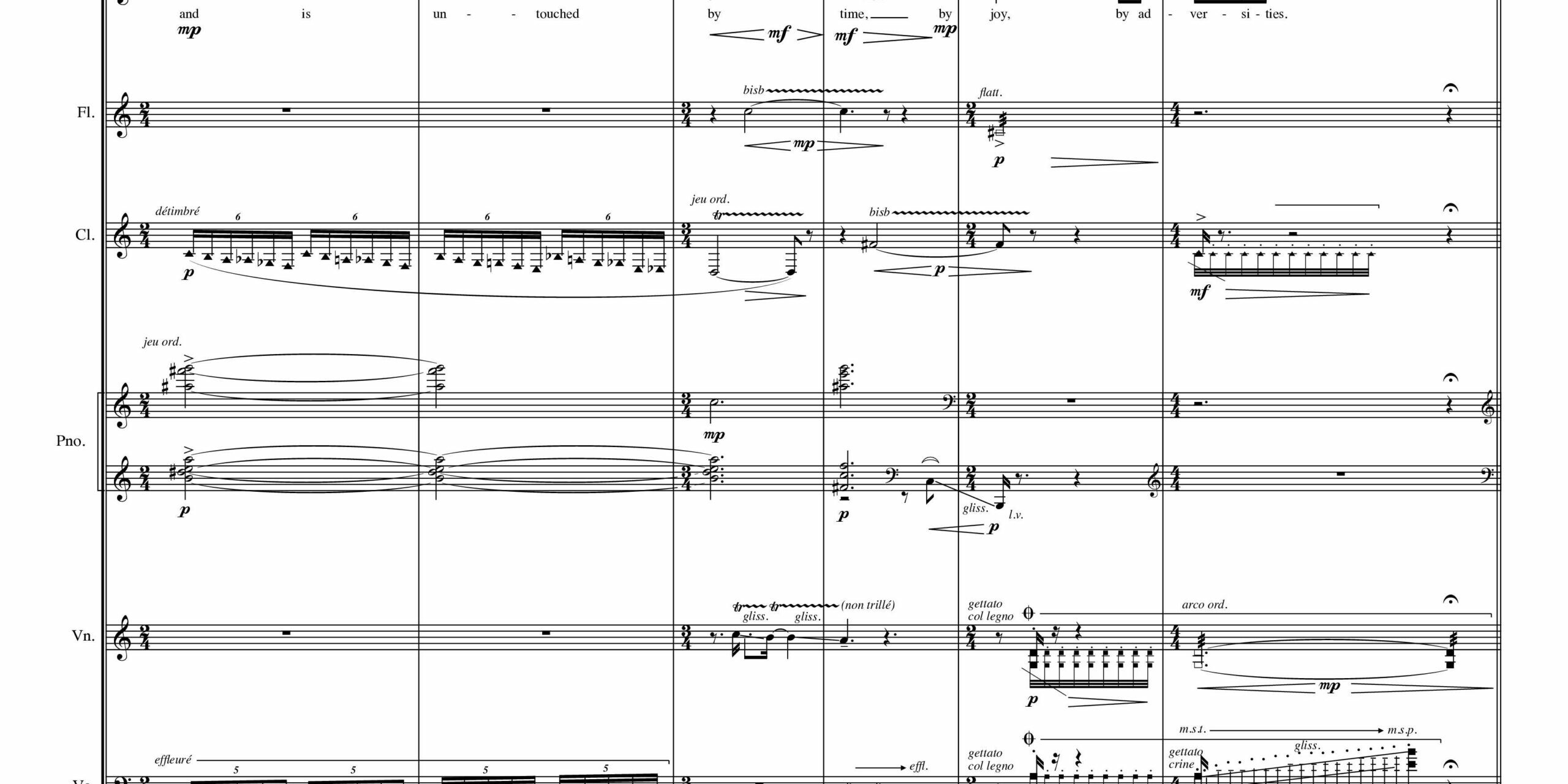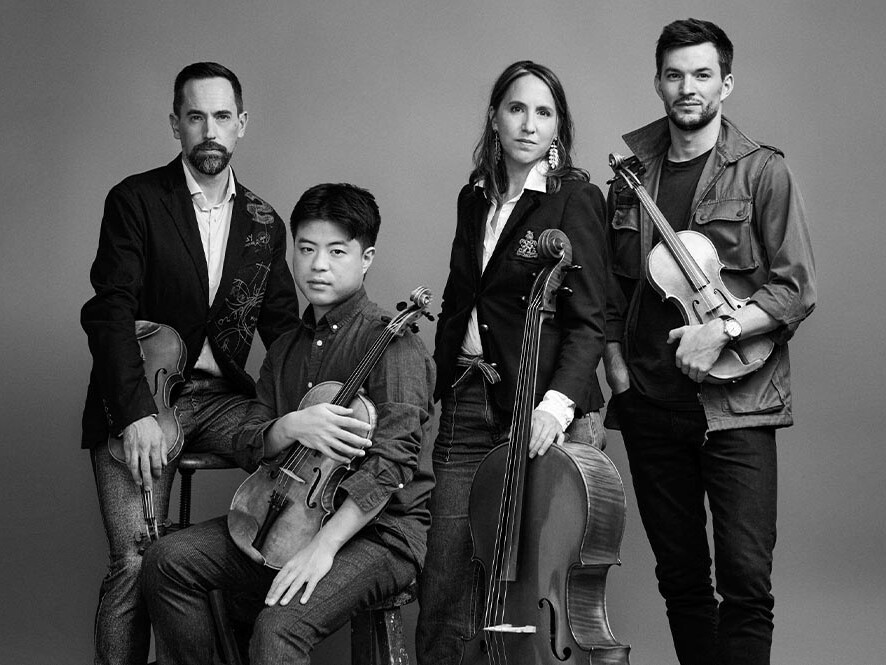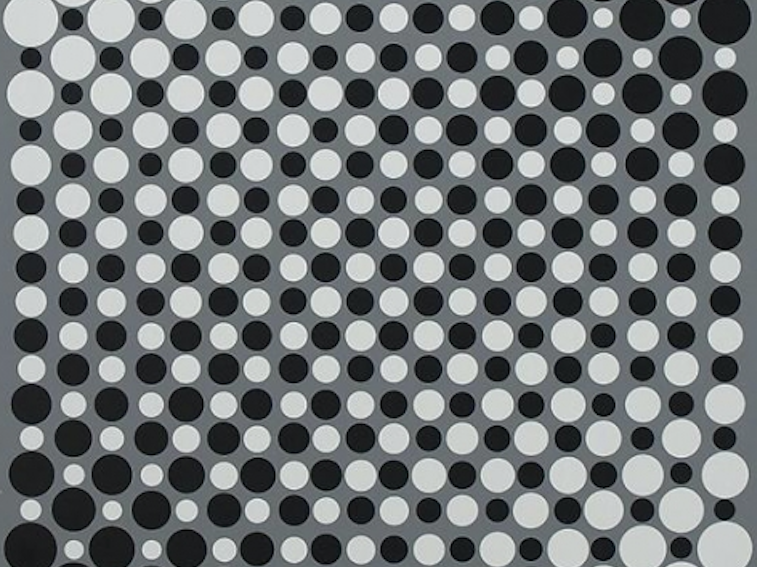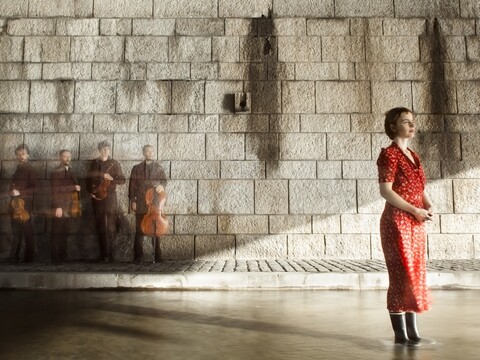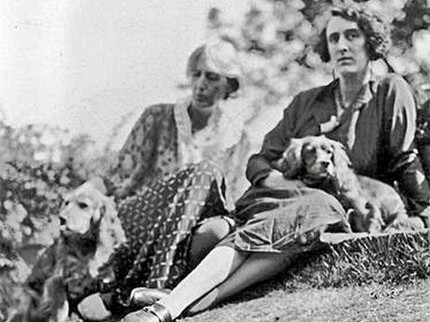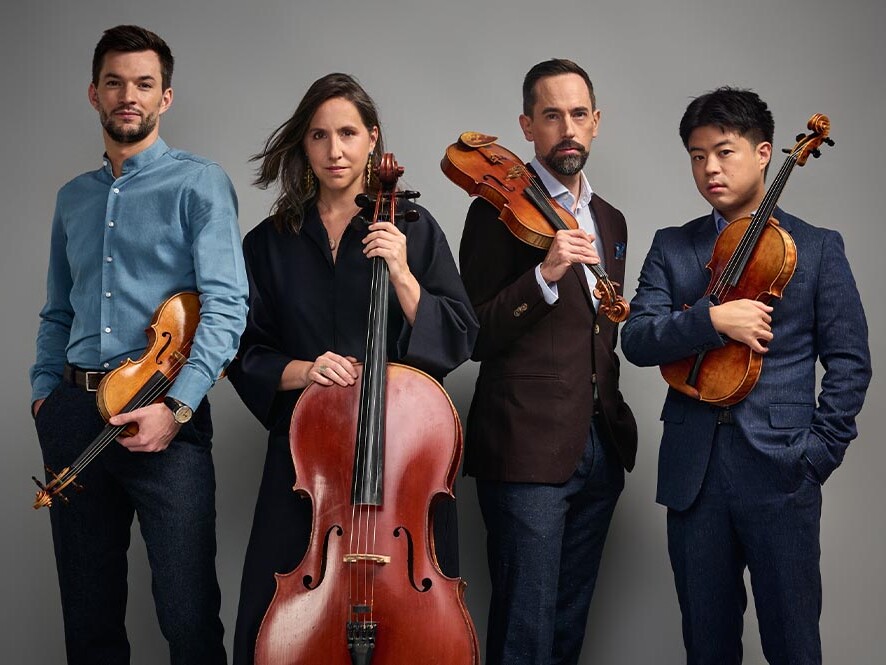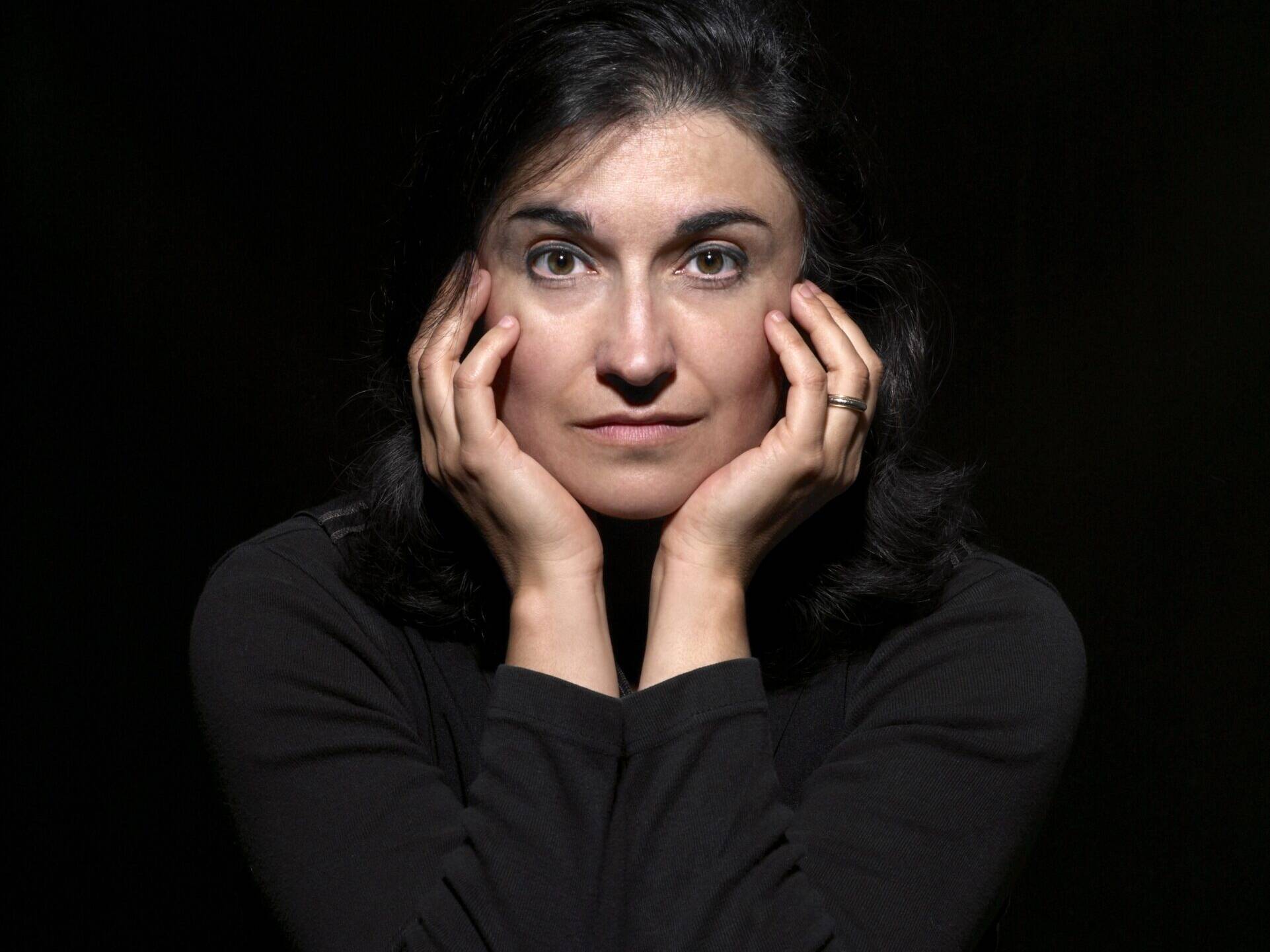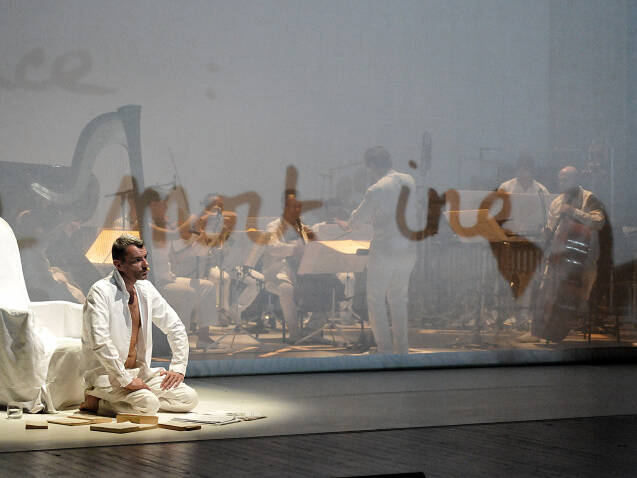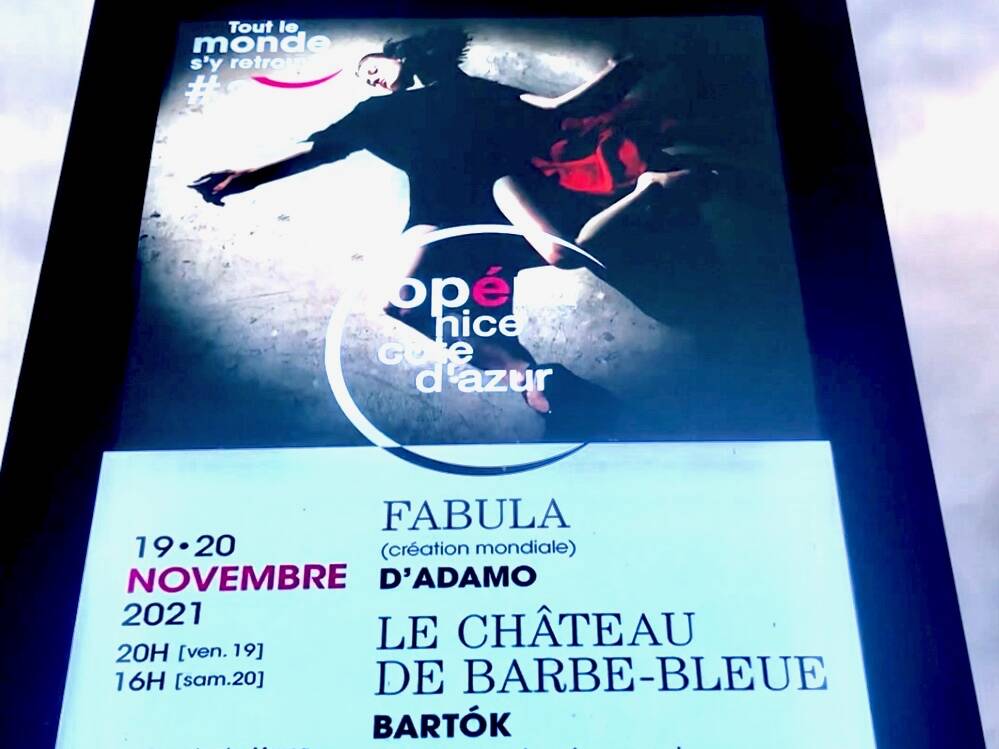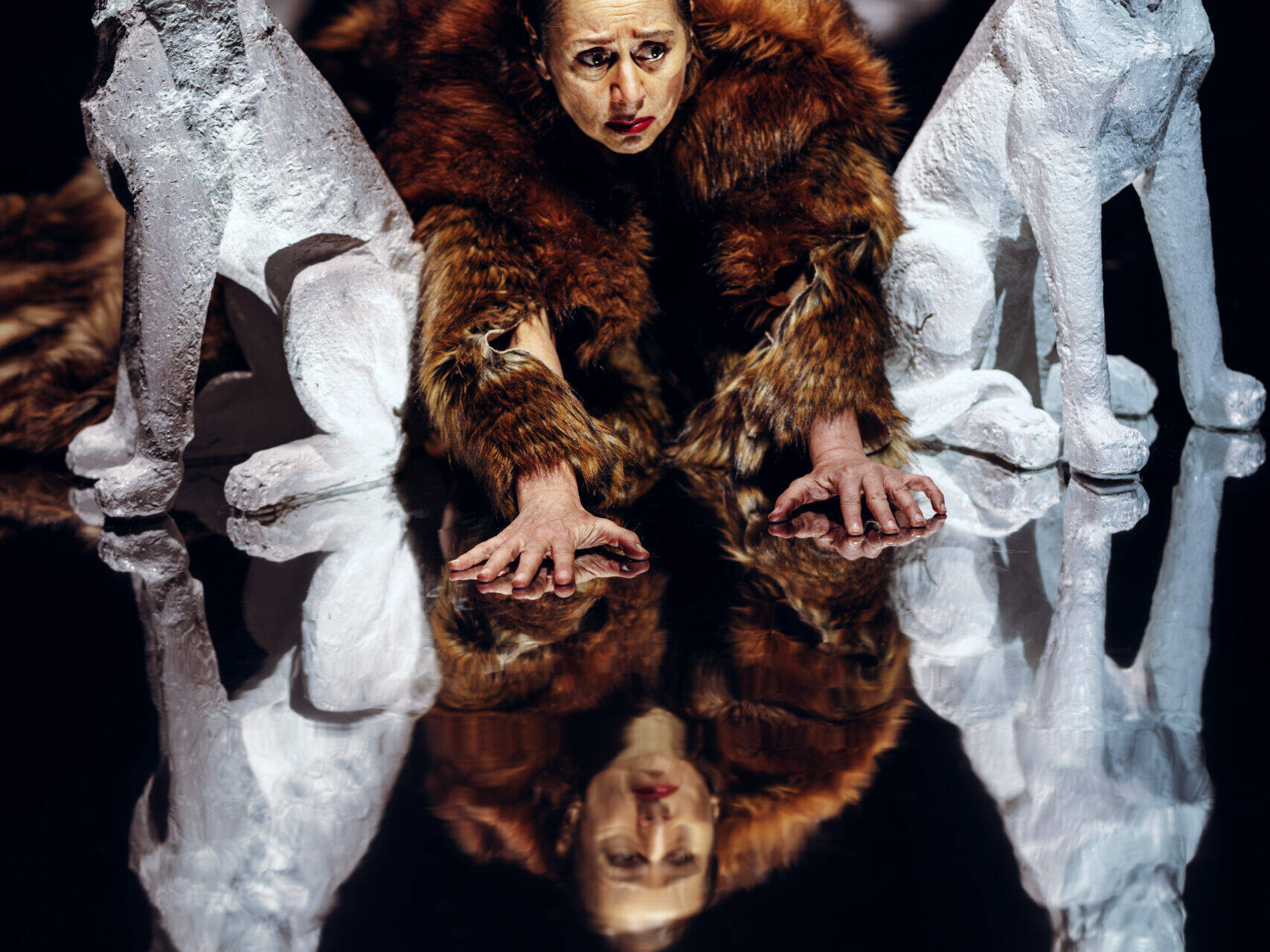Two English Poems by Borges
Publisher:
Première:
March 2013, Ensemble Accroche Note, Françoise Kubler soprano, Reims Opera House, France
Year
2012-13
Commission:
French Ministry of Culture with the support of the Jorge Luis Borges and Maria Kodama International Foundation
Duration:
14 min
Two English Poems by Borges
for soprano, flute, clarinet, violin, cello and piano
Of the subjects-worlds with which Jorge Luis Borges built his literary universe, passionate love is the one he best encrypted throughout his production. Most often associating erudition with modesty, he covered the subject with a veil which little shines through. An exception of rare beauty is his Two English Poems. Written directly in English, he there expresses a passion of rare intensity, sheltered by his second language, his mother tongue: I must get at you, somehow (…).
I composed on these two poems like someone who invites himself into the intimacy of a secret passion. All the musical ideas I used are deliberately delicate and seem ephemeral. In their associations, they hide with transparent modesty the poet’s desires: I can give you my loneliness, my darkness, the hunger of my heart (…).
Daniel D’Adamo
Two English Poems by Borges
pour soprano, flûte, clarinette, violon, violoncelle et piano
Des sujets-mondes avec lesquels Jorge Luis Borges a bâti son univers littéraire, la passion amoureuse est celui qu’il a le mieux crypté tout au long de sa production. Associant le plus souvent l’érudition à la pudeur, il a couvert le sujet d’un voile à travers duquel peu de choses transparaissent. Une exception d’une rare beauté est ses Two English Poems. Écrits directement en anglais, il y exprime une passion d’une rare intensité, abrité par sa deuxième langue, sa langue maternelle : I must get at you, somehow (…).
J’ai composé sur ces deux poèmes comme celui qui s’invite dans l’intimité d’une passion secrète. Toutes les idées musicales que j’ai utilisées sont volontairement délicates et semblent éphémères. Dans leurs associations, elles cachent avec une pudeur transparente, les désirs du poète : I can give you my loneliness, my darkness, the hunger of my heart (…).
Daniel D’Adamo
Two English Poems by Borges
para soprano, flauta, clarinete, violín, violoncello y piano
De los temas-mundos con los que Jorge Luis Borges construyó su universo literario, la pasión amorosa es el que mejor cifró a lo largo de su producción. Al asociar la erudición con la modestia, cubrió el tema con un velo a través del cual poco se podía ver. Una excepción de rara belleza son sus Two English Poems. Escritos directamente en inglés, expresan una pasión de rara intensidad, protegido por su segunda lengua, su lengua materna: Debo llegar a ti, de alguna manera (…).
Compuse sobre estos dos poemas como quien se invita a la intimidad de una pasión secreta. Todas las ideas musicales que utilicé son deliberadamente delicadas y parecen efímeras. En sus asociaciones, esconden con transparente modestia los deseos del poeta: Puedo darte mi soledad, mi oscuridad, el hambre de mi corazón (…).
Daniel D’Adamo
Two English Poems
To Beatriz Bibilone Webster de Bullrich
I
The useless dawnd finds me in a deserted street-
corner; I have outlived the night.
Nights are proud waves; darkblue topheavy waves
laden with all the hues of deep spoil, laden with
things unlikely and desirable.
Nights have a habit of mysterious gifts and refusals,
of things half given away, half withheld,
of joys with a dark hemisphere. Nights act
that way, I tell you.
The surge, that night, left me the customary shreds
and odd ends: some hated friends to chat
with, music for dreams, and the smoking of
bitter ashes. The things my hungry heart
has no use for.
The big wave brought you.
Words, any words, your laughter; and you so lazily
and incessantly beautiful. We talked and you
have forgotten the words.
The shattering dawn finds me in a deserted street
of my city.
Your profile turned away, the sounds that go to
make your name, the lilt of your laughter:
these are the illustrious toys you have left me.
I turn them over in the dawn, I lose them, I find
them; I tell them to the few stray dogs and
to the few stray stars of the dawn.
Your dark rich life …
I must get at you, somehow; I put away those
illustrious toys you have left me, I want your
hidden look, your real smile — that lonely,
mocking smile your cool mirror knows.
II
What can I hold you with?
I offer you lean streets, desperate sunsets, the
moon of the jagged suburbs.
I offer you the bitterness of a man who has looked
long and long at the lonely moon.
I offer you my ancestors, my dead men, the ghosts
that living men have honoured in bronze:
my father’s father killed in the frontier of
Buenos Aires, two bullets through his lungs,
bearded and dead, wrapped by his soldiers in
the hide of a cow; my mother’s grandfather
–just twentyfour– heading a charge of
three hundred men in Peru, now ghosts on
vanished horses.
I offer you whatever insight my books may hold,
whatever manliness or humour my life.
I offer you the loyalty of a man who has never
been loyal.
I offer you that kernel of myself that I have saved,
somehow –the central heart that deals not
in words, traffics not with dreams, and is
untouched by time, by joy, by adversities.
I offer you the memory of a yellow rose seen at
sunset, years before you were born.
I offer you explanations of yourself, theories about
yourself, authentic and surprising news of
yourself.
I can give you my loneliness, my darkness, the
hunger of my heart; I am trying to bribe you
with uncertainty, with danger, with defeat.
Jorge Luis Borges (1934)

